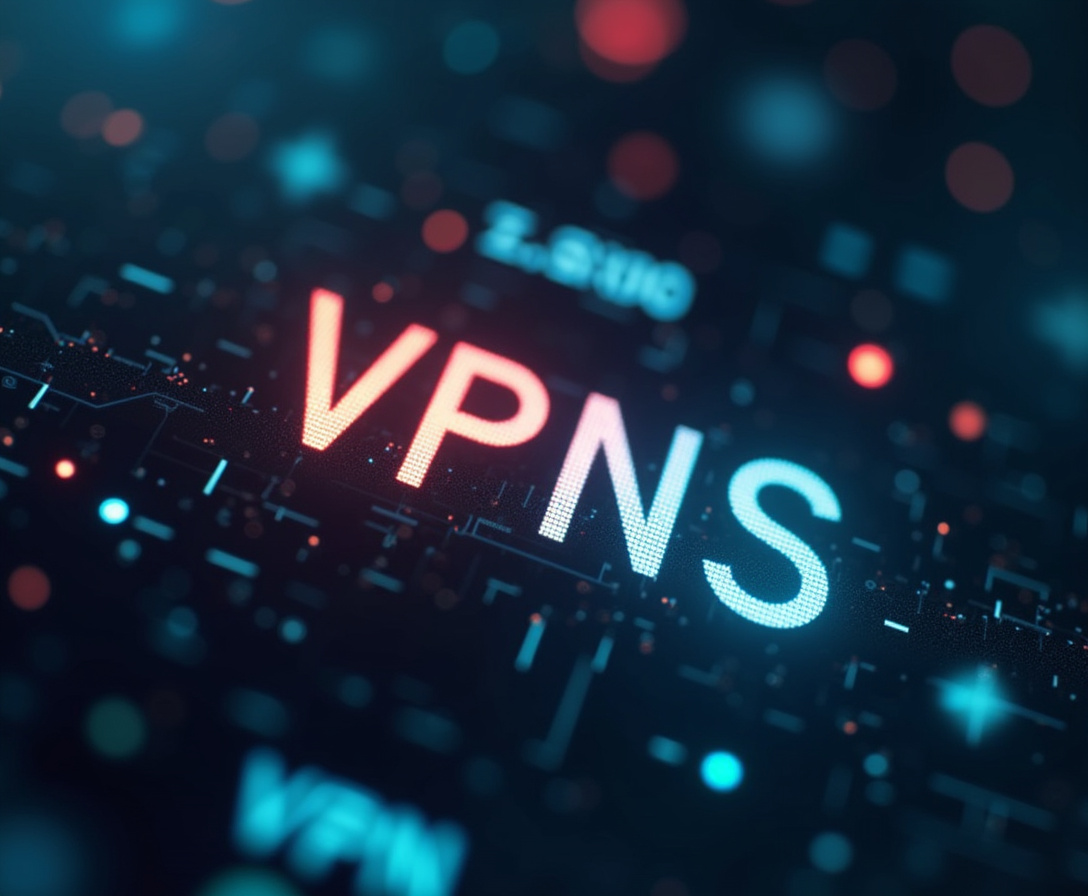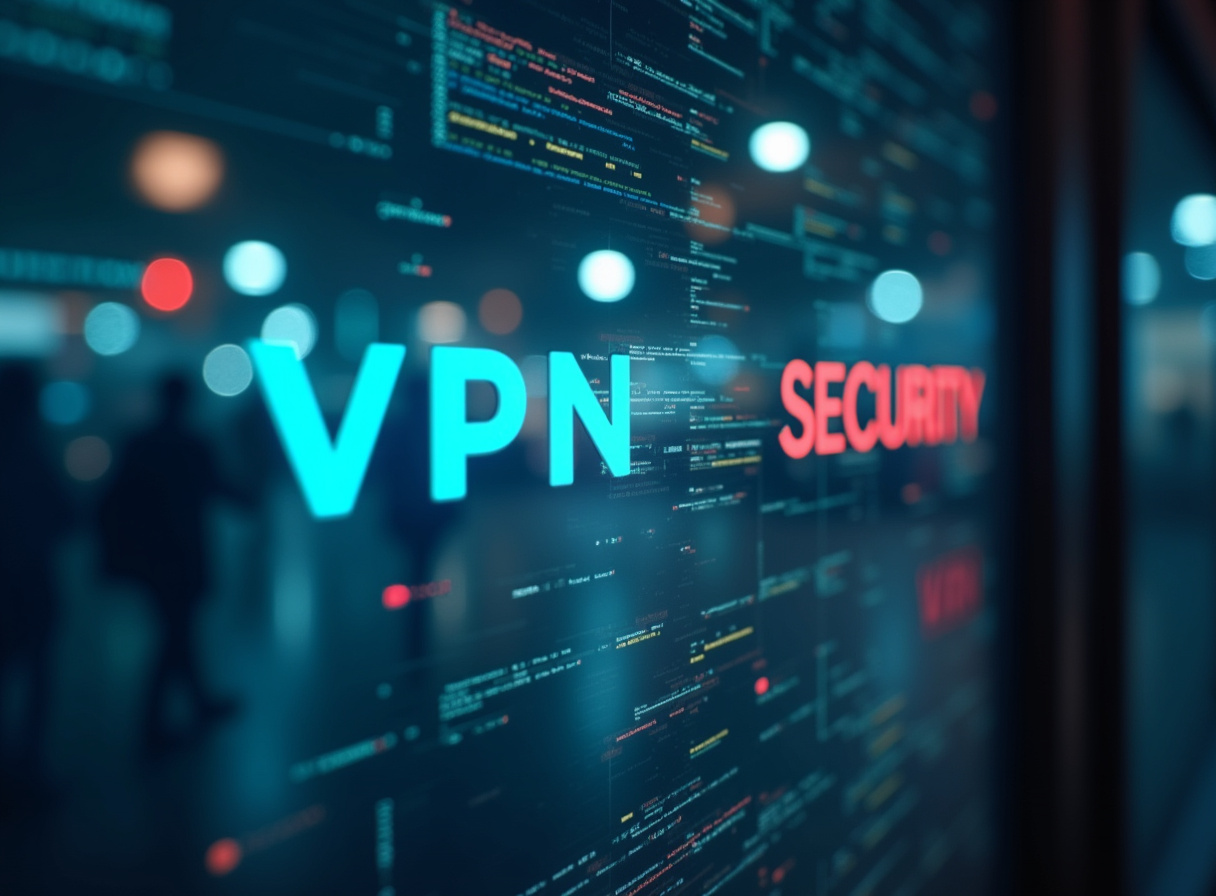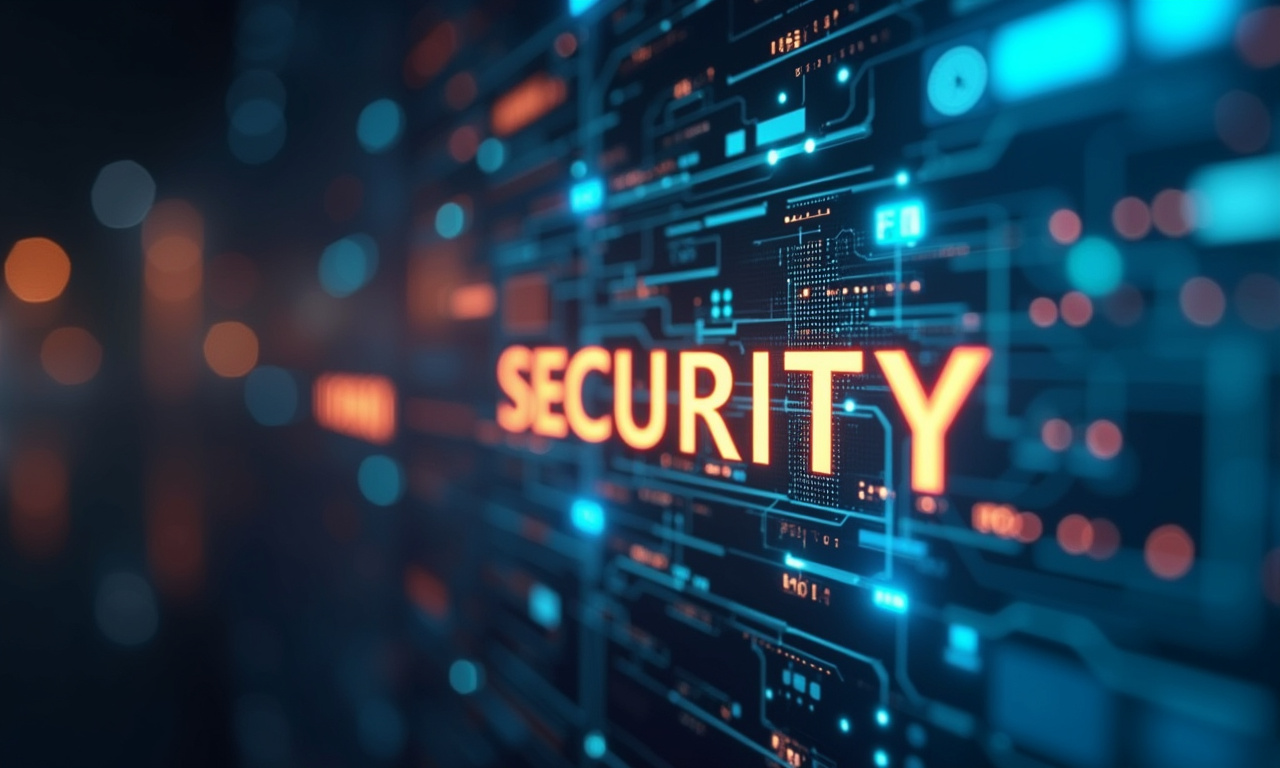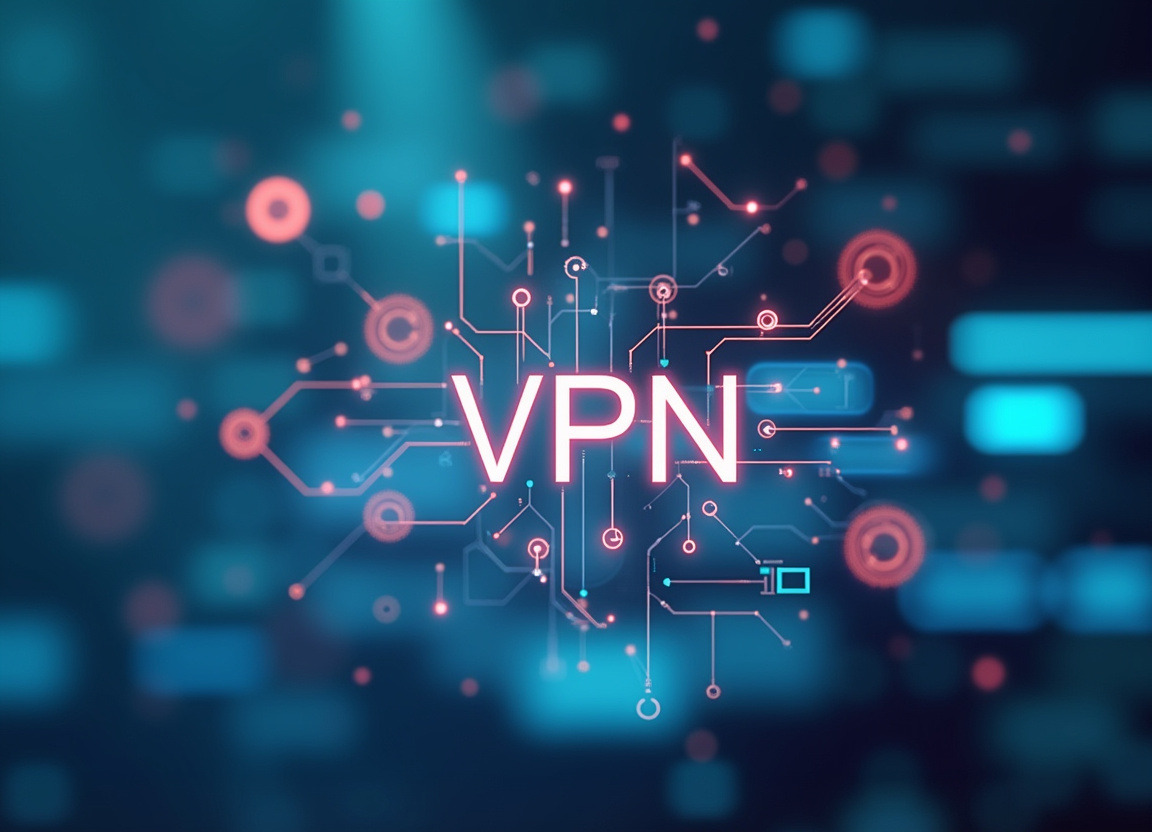VPNs for Film Production Companies: Securing Creative Collaborations
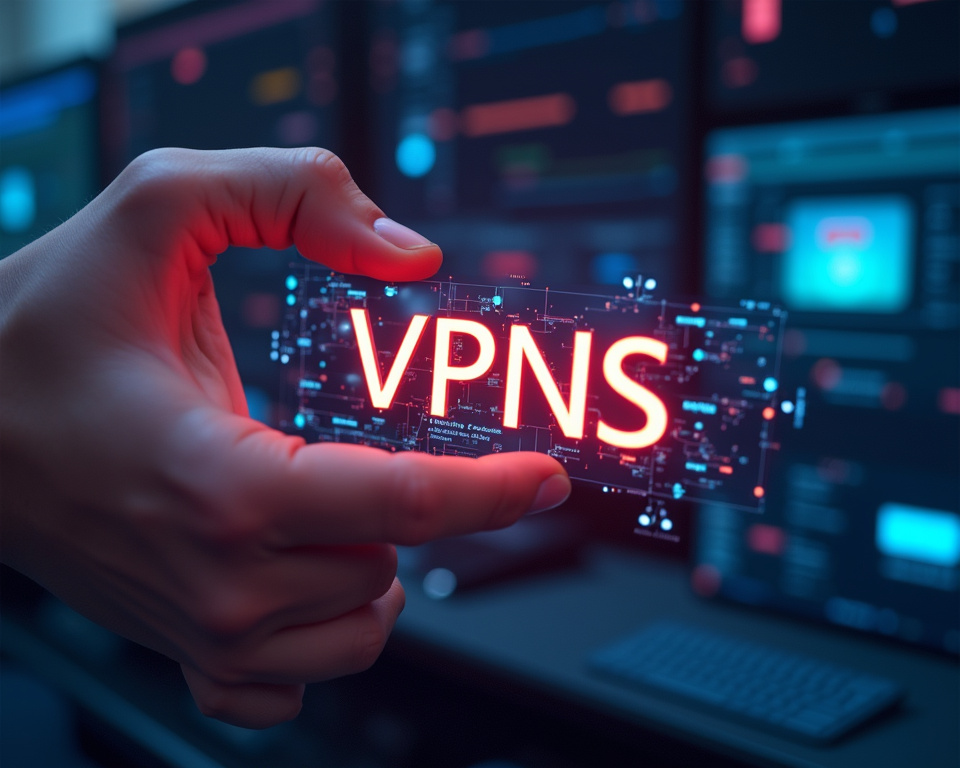
Table of Contents
In the captivating realm of film production, where artistry merges seamlessly with cutting-edge technology, the safeguarding of sensitive data and creative assets is nothing short of paramount. Film production companies, whether independent studios or major Hollywood players, are increasingly reliant on interconnected and collaborative workflows. These workflows often encompass geographically dispersed teams, freelance artists, external vendors, and a myriad of third-party collaborators.
While this interconnectedness undoubtedly fuels efficiency, sparks innovation, and accelerates production timelines, it also introduces a complex web of security vulnerabilities that must be addressed proactively. The theft of a leaked script, the unauthorized distribution of pre-release footage, the compromise of confidential production data – these scenarios can lead to catastrophic financial losses, irreparable reputational damage, and even jeopardize the theatrical release of a highly anticipated film. In this landscape of evolving digital threats, Virtual Private Networks (VPNs) have emerged as an indispensable tool for film production companies, providing a secure, reliable, and encrypted means to protect their intellectual property, facilitate creative collaboration, and ensure the data integrity of the entire production pipeline.
The digital media landscape is constantly transforming. Cyber threats are also evolving in sophistication and scope at an alarming pace. What might have been considered adequate security measures just a few years ago may now be woefully insufficient to defend against the advanced persistent threats targeting the film industry.
In this context, the implementation of a robust 'film production VPN' is no longer a luxury. It’s an absolute necessity for protecting crucial data assets at every stage of filmmaking. From the initial development of a script and pre-production planning to principal photography, visual effects rendering, editing, post-production distribution, security is of utmost importance.
Every stage of the filmmaking process involves the constant storage, transmission, and exchange of highly valuable data. This data encompasses not only the film's creative content – scripts, storyboards, raw footage, edited scenes, sound design – but also highly sensitive financial information, including budgets, contracts, investor details, royalty agreements, and the personal data of cast and crew members. Given the sensitive data and the number of people involved, film companies cannot neglect their cyber security strategies.
The collaborative nature of filmmaking introduces unique security challenges. A large cast of talent and the complex data infrastructure, are all challenging to protect. VPNs play a crucial role in maintaining 'creative collaboration security'.
With creative teams often spanning continents and productions relying heavily on external collaborators, freelancers, and specialized vendors, the traditional boundaries of the production network become increasingly blurred and difficult to manage. Individual team members and departments use a range of devices, from smartphones and tablets to laptops and desktop workstations and they connect to the network from a variety of locations, including home offices, film sets, post-production facilities, and even public Wi-Fi hotspots. Unsecured connections, unencrypted file sharing protocols, and lax security practices among remote workers create opportunities for malicious actors to infiltrate the production network and compromise sensitive assets.
A robust VPN infrastructure plays a critical role in addressing these challenges by providing a secure, encrypted "tunnel" for data transmission, ensuring that only authorized personnel with valid credentials can access confidential information and project-related resources. By implementing a well-designed and properly configured VPN solution, film production companies can effectively mitigate the security risks associated with remote collaboration, protect their valuable intellectual property from theft and unauthorized access, and maintain the integrity and confidentiality of their productions throughout the entire filmmaking process. With that said, finding the proper cybersecurity for 'VPN for film' is a complex process that requires careful research.
In the realm of film production, where creativity dances with technology, the protection of sensitive data and the smooth orchestration of creative collaboration stand as paramount concerns. A linchpin in this security framework is the concept of "data integrity"—the assurance that information remains accurate, consistent, and unaltered throughout its lifecycle, from creation to archival. Any compromise to data integrity can have devastating consequences for a film production company, leading to project delays, financial losses, legal liabilities, and reputational damage.
A Virtual Private Network (VPN) plays a fundamental role in upholding data integrity by providing a secure and encrypted channel for data transmission, protecting it from unauthorized access, modification, or deletion. The threat landscape facing film production companies is constantly evolving, with new and more sophisticated cyberattacks emerging on a regular basis. From malware infections and ransomware attacks to phishing scams and insider threats, the potential for data breaches and security compromises is ever-present.
A VPN acts as a critical defense mechanism against these threats, creating a secure perimeter around sensitive data and limiting the potential for unauthorized access. For film production companies, ensuring 'production data protection' is not just about preventing external attacks; it's also about controlling internal access and preventing accidental or malicious data leakage. A well-configured VPN allows administrators to implement granular access controls, restricting access to specific data resources based on user roles, responsibilities, and project requirements.
This ensures that only authorized personnel have access to sensitive information, reducing the risk of internal threats and data breaches. Data encryption is a cornerstone of any effective data integrity strategy. Encryption transforms plain text data into an unreadable format, rendering it useless to unauthorized parties who may intercept or gain access to it.
A VPN utilizes strong encryption algorithms to protect data both in transit and at rest. In transit, encryption ensures that data transmitted over the internet remains confidential and secure from eavesdropping. At rest, encryption protects data stored on servers, laptops, and other devices from unauthorized access in the event of theft or loss.
Data loss prevention (DLP) is another critical aspect of data integrity. DLP solutions monitor data in use, in transit, and at rest to detect and prevent sensitive information from leaving the organization's control. A VPN can be integrated with DLP systems to enforce data loss prevention policies, such as blocking the transmission of sensitive data over unencrypted channels or preventing the copying of sensitive files to removable media.
In addition to security measures, film production companies must also implement robust data backup and recovery procedures to protect against data loss due to accidental deletion, hardware failure, or natural disasters. Regular data backups should be performed and stored securely in a remote location. In the event of data loss, a VPN can be used to securely restore data from backups, ensuring business continuity and minimizing downtime.
Maintaining accurate and complete audit logs is essential for monitoring data integrity and detecting security breaches. Audit logs record all user activity, including data access, modification, and deletion. A VPN can be configured to capture comprehensive audit logs, providing valuable insights into data usage patterns and helping to identify suspicious activity.
Regular security audits and vulnerability assessments are critical for identifying and addressing potential weaknesses in the film production company's security posture. Security audits involve a comprehensive review of the organization's security policies, procedures, and controls. Vulnerability assessments involve scanning the network for known vulnerabilities.
A VPN can be used to facilitate these assessments by providing secure remote access for auditors and penetration testers. Employee training and awareness programs are essential for promoting a culture of security within the film production company. Employees should be trained on data integrity principles, security best practices, and how to identify and report potential security threats.
A VPN can be used to deliver security awareness training materials to remote employees securely.
When it comes to selecting a 'VPN for film', film production companies face a complex array of options, each with its own set of features, capabilities, and pricing models. Choosing the right VPN solution requires careful consideration of several key factors, including security protocols, encryption strength, bandwidth requirements, server locations, and ease of use. A VPN's security protocols form the foundation of its data protection capabilities.
The most commonly used VPN protocols include OpenVPN, IPsec, and WireGuard, each offering varying levels of security and performance. OpenVPN is widely regarded as one of the most secure and reliable VPN protocols, offering strong encryption and support for a variety of security configurations. IPsec is another well-established VPN protocol, often used in enterprise environments due to its robust security features and compatibility with a wide range of devices.
WireGuard is a relatively new VPN protocol that has gained popularity in recent years due to its speed, simplicity, and strong security. The strength of a VPN's encryption algorithms is another critical factor to consider. The Advanced Encryption Standard (AES) is the industry standard for data encryption, with AES-256 offering the highest level of security.
A VPN should support AES-256 encryption to ensure that data is protected from eavesdropping and unauthorized access. Bandwidth is a crucial consideration for film production companies that frequently transfer large files, such as raw footage, high-resolution renders, and edited video projects. A VPN with insufficient bandwidth can create performance bottlenecks and significantly slow down production workflows.
A VPN should offer sufficient bandwidth to accommodate the company's data transfer needs, especially during peak usage times. The geographic distribution of a VPN's servers is another important factor to consider, particularly for film production companies that collaborate with teams and vendors located in different parts of the world. A VPN with servers in multiple locations allows users to connect to the internet through a server that is geographically close to their location, improving connection speeds and reducing latency.
Ease of use is a key consideration for film production companies that want to ensure that their employees can easily use the VPN without requiring extensive technical expertise. A VPN should have a user-friendly interface, clear instructions, and comprehensive documentation. The VPN should also be compatible with a variety of operating systems and devices, including Windows, macOS, iOS, and Android.
In addition to the above factors, film production companies should also consider the following: What is the logging policy and how do they use the data that is provided. This depends on what type of information the film production business wants to keep secret. Does the VPN provider offer customer support?
Reliable customer support is essential for resolving any issues or questions that may arise. What is the cost of the VPN subscription? VPN pricing varies widely, so it's important to compare different options and choose a VPN that fits the company's budget.
Beyond technical specifications, the reputation and trustworthiness of the VPN provider are paramount. Companies should conduct thorough research, reading reviews and seeking recommendations from trusted sources. Look for providers with a proven track record of security and privacy, and avoid VPNs with a history of data breaches or privacy violations.
The integration capabilities of a VPN within the existing IT infrastructure should be considered. A VPN should seamlessly integrate with current security systems, such as firewalls, intrusion detection systems, and identity management platforms, creating a cohesive and comprehensive security posture. Considering these factors in connection, will help choose the best strategy for a business concerning 'production data protection'.
The successful implementation of a 'film production VPN' within a film production company requires a strategic and well-planned approach. It's not simply about purchasing a VPN subscription; it's about integrating the VPN seamlessly into the existing IT infrastructure, configuring it properly, and establishing clear policies and procedures for its use. The first step in implementing a film production VPN is to conduct a thorough security assessment.
This assessment should identify the company's most valuable data assets, the potential threats to those assets, and the existing security controls in place. The assessment should also identify any gaps in security and recommend specific measures to address those gaps. Based on the security assessment, the film production company should develop a comprehensive VPN implementation plan.
This plan should outline the goals of the VPN implementation, the scope of the project, the resources required, the timeline, and the key stakeholders involved. The plan should also define the VPN configuration settings, including the security protocols, encryption algorithms, and access controls to be used. Once the implementation plan has been developed, the film production company should begin configuring the VPN.
Involving a cybersecurity professional could be very advantageous at this stage to maximize effectiveness. This includes installing the VPN software on all endpoint devices, configuring the VPN server, and setting up user accounts and permissions. The VPN should be configured to enforce the principle of least privilege, granting users only the minimum level of access necessary to perform their job duties.
After the VPN has been configured, it's important to test it thoroughly to ensure that it's working as expected. This includes testing the VPN's security, performance, and usability. The testing should also include simulating real-world scenarios, such as remote access from different locations and data transfer of large files.
Once the VPN has been tested and validated, the film production company should develop clear policies and procedures for its use. These policies should outline the proper use of the VPN, the security requirements for connecting to the VPN, and the consequences of violating the VPN policies. The policies should also address issues such as password security, data handling, and incident reporting.
Employee training and awareness programs are essential for ensuring that employees understand how to use the VPN properly and the importance of following the VPN policies. The training should cover topics such as connecting to the VPN, using strong passwords, avoiding phishing scams, and reporting security incidents. The film production company should also establish a process for monitoring the VPN to detect any security breaches or performance issues.
The monitoring should include reviewing VPN logs, tracking user activity, and scanning for vulnerabilities. Any security incidents should be investigated promptly and appropriate corrective actions should be taken. The VPN implementation should be reviewed and updated regularly to ensure that it remains effective and aligned with the company's evolving security needs.
The review should include reassessing the security assessment, updating the VPN configuration, and revising the VPN policies and procedures. Security evolves and regular data control is crucial to ensure 'data integrity'. By following these steps, film production companies can implement a film production VPN effectively and improve their overall security posture.
The investment in a secure VPN is an investment in the future of the film company, safeguarding its most valuable assets and ensuring its continued success in a competitive industry. Furthermore, it is beneficial to make sure your VPN is well adapted in situations of 'creative collaboration security'.
In conclusion, the integration of Virtual Private Networks (VPNs) into the workflows of film production companies is no longer a matter of choice but a fundamental imperative for safeguarding creative collaborations, ensuring the integrity of valuable production data, and mitigating the ever-present risks of cyberattacks. By establishing a secure and encrypted channel for data transmission, a film production VPN acts as a critical shield against unauthorized access, data breaches, and intellectual property theft. From protecting sensitive scripts and pre-release footage to securing financial records and personal data, a well-implemented VPN solution provides a robust security posture across the entire filmmaking process.
The advantages of using a 'film production VPN' are manifold, providing a framework for a solid cyber security system. Foremost among these benefits is the enhanced security it provides, encrypting all traffic going to and from the office. As workforces and creative collaboration become increasingly dispersed, VPNs allow team members to connect securely to company file servers and production networks from anywhere in the world, fostering a more collaborative working environment.
A VPN can also provide greater security for the connection used by the staff working remotely, protecting their data. In today's digital realm is critical to guarantee 'production data protection'. However, the successful adoption of a VPN is not simply a matter of acquiring a subscription.
It requires a strategic and comprehensive approach that encompasses careful planning, proper configuration, employee training, and continuous monitoring. Film production firms must conduct thorough security assessments to understand their vulnerabilities. They also must develop clear policies and procedures for VPN use and provide security awareness training to staff, ensuring that they understand how to use it properly.
One thing commonly overlooked, is that cybersecurity measures must also evolve with the specific data and projects running through a business. By integrating security measures, they can secure their VPN. This includes ensuring regular updates, auditing logs, and staying on top of the latest security threats.
The emphasis on safety must be strong throughout the creative environment. It’s critical that all parties follow safety regulations, from employees to freelancers, and be aware of the possible dangers and security measures necessary to minimize risk in creative collaboration. To maintain the highest standards of 'data integrity', film productions must have plans for data backup and recovery in place to reduce downtime and minimize data loss in the event of a breach.
Film production firms may guarantee they are adequately protected by integrating frequent security audits and vulnerability analyses into their security strategy. Not only must they maintain, but improve cybersecurity defenses as necessary. In conclusion, film production firms must prioritize cybersecurity and accept VPNs as essential to the success of their creative and collaborative processes.
They can protect their works by putting strong security measures in place, minimizing risks, and fostering a culture of security and maintain the confidence of their partners, stakeholders, and customers in an increasingly interconnected and ever-changing environment. With these points the main objectives related to a "VPN for film" will be accomplished successfully.
Stay Updated
Get the latest VPN news, tips, and exclusive deals to your inbox.
